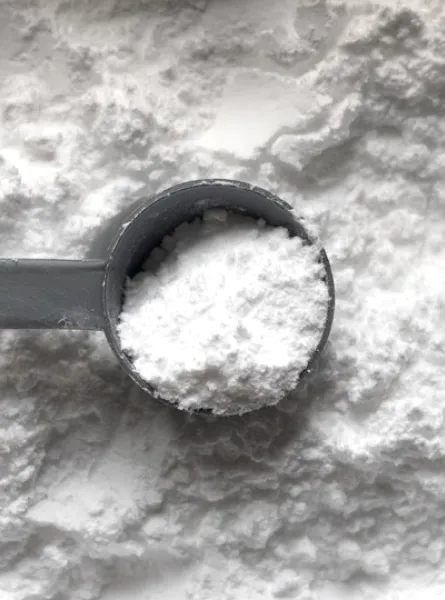
When it comes to achieving ambitious athletic goals, every detail matters. According to the Canadian Guidelines on Alcohol and Health, moderate consumption or abstinence can reduce health risks, including the negative impacts on physical and mental performance (1).
During training periods, adopting sobriety becomes a particularly beneficial strategy. This choice not only enhances your physical efforts but also improves your overall well-being. Let’s explore the key benefits recommended by experts, including our sports dietitians, to help you maximize your performance.
1. Enhanced Physical Recovery
Training causes small muscle tears that need repair to grow stronger. This process, called recovery, depends on two key factors: protein synthesis and the replenishment of muscle glycogen.
Alcohol disrupts these mechanisms by reducing the production of proteins essential for muscle repair and slowing the storage of energy as glycogen (2-3). By staying sober, you give your body the best chance to recover effectively and maximize the benefits of each session.
2. Improved Athletic Performance
Alcohol impairs reflexes, coordination, and balance—essential elements for sports activities like weightlifting, running, or team sports (4).
Additionally, optimal blood oxygenation, critical for delivering energy to muscles, is better preserved without alcohol. Choosing sobriety improves every aspect of your performance.
3. Better Sleep Quality
Contrary to popular belief, alcohol does not promote deep, restorative sleep. While it may help you fall asleep quickly, it disrupts sleep cycles, particularly the deep phases essential for physical and mental recovery (4).
By abstaining from alcohol, you benefit from higher-quality sleep, allowing you to start each training session energized and mentally clear.
4. Increased Energy and Focus
Alcohol consumption can cause energy fluctuations, lack of focus, and decreased motivation. Choosing sobriety stabilizes your energy levels throughout the day, helping you fully concentrate on your athletic goals (5). This enables you to invest completely in each session and maximize your efforts.
5. Reduced Risk of Injury
Alcohol compromises safety during training. It affects reflexes, reduces coordination, and slows reaction times (4). This can lead to imprecise movements and increase injury risk, especially in activities requiring high levels of precision or strength.
Avoiding alcohol reduces these risks, creating a safer environment to achieve your goals.
6. Optimal Weight Management
Alcohol contains a high number of empty calories—calories without nutritional value. A single night of drinking can undo a week’s effort to maintain or lose weight.
Additionally, alcohol interferes with fat metabolism, making it harder to lose fat mass (5). Staying sober helps you control your diet and optimize body composition, whether you aim to build muscle or lose fat.
7. Enhanced Mental Health and Motivation
Alcohol consumption can negatively impact mental health, causing mood swings or reduced motivation. Eliminating alcohol promotes mental clarity and emotional stability, allowing you to stay focused on your long-term athletic goals. This choice also strengthens determination and helps develop a better training routine (5).
8. Improved Hydration
Alcohol increases water loss by inhibiting a hormone that retains fluids. This effect is especially pronounced with drinks over 4% alcohol (5). Additionally, alcohol amplifies fluid loss by increasing blood flow under the skin, encouraging evaporation.
To stay well-hydrated and perform at your best—especially after training when you’ve already lost fluids through sweat—it’s best to avoid alcohol. This supports better recovery and sustained performance.
9. Strengthened Immune System
Intensive training can temporarily weaken the immune system. Adding alcohol to this additional stress exacerbates immune suppression, making the body more vulnerable to infections and illnesses (6).
By abstaining from alcohol, you allow your body to remain resilient to the demands of regular training, minimizing interruptions caused by health issues.
10. Faster Goal Achievement
Consistency is the key to progress in sports. Alcohol, by disrupting sleep, diet, and energy, makes it harder to maintain a regular training routine (5). By avoiding alcohol, you build healthy and consistent habits, enabling you to achieve your goals faster while staying in top form.
Elevate Your Training with Informed Choices and Support from a Sports Dietitian
Adopting sobriety during training periods offers numerous benefits, from optimizing performance and recovery to improving overall health. However, it’s important to find a realistic balance that works for you and your lifestyle. Every small change counts when aligned with your goals.
To support your journey, why not consult a professional? Book an appointment with a dietitian nutritionist to develop a personalized plan tailored to your needs and take your performance to the next level.
References
- Centre canadien sur les dépendances et l’usage de substances. (2023). Repères canadiens sur l’alcool et la santé. https://www.ccsa.ca/en/canadas-guidance-alcohol-and-health-final-report
- Parr, E. B., Camera, D. M., Areta, J. L., Burke, L. M., Phillips, S. M., Hawley, J. A., & Coffey, V. G. (2014). Alcohol ingestion impairs maximal post-exercise rates of myofibrillar protein synthesis following a single bout of concurrent training. PloS one, 9(2), e88384. https://doi.org/10.1371/journal.pone.0088384
- Burke, L. M., Collier, G. R., Broad, E. M., Davis, P. G., Martin, D. T., Sanigorski, A. J., & Hargreaves, M. (2003). Effect of alcohol intake on muscle glycogen storage after prolonged exercise. Journal of applied physiology (Bethesda, Md. : 1985), 95(3), 983–990. https://doi.org/10.1152/japplphysiol.00115.2003
- Siekaniec, Claire. (Juin 2017). The Effects of Alcohol on Athletic Performance. National Strength and Conditioning Association. https://www.nsca.com/education/articles/nsca-coach/the-effects-of-alcohol-on-athletic-performance2?utm_source=chatgpt.com
- Vella, L. D., & Cameron-Smith, D. (2010). Alcohol, athletic performance and recovery. Nutrients, 2(8), 781–789. https://doi.org/10.3390/nu2080781
- Barr, T., Helms, C., Grant, K., & Messaoudi, I. (2016). Opposing effects of alcohol on the immune system. Progress in neuro-psychopharmacology & biological psychiatry, 65, 242–251. https://doi.org/10.1016/j.pnpbp.2015.09.001





